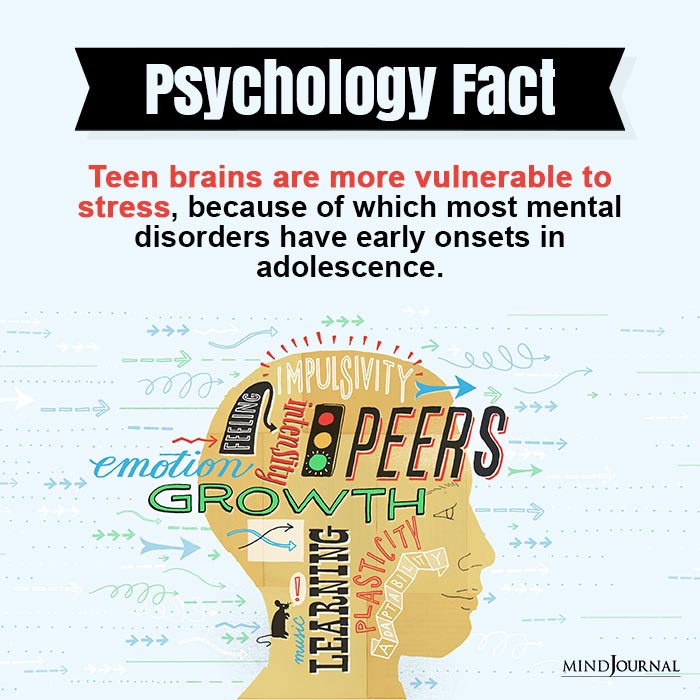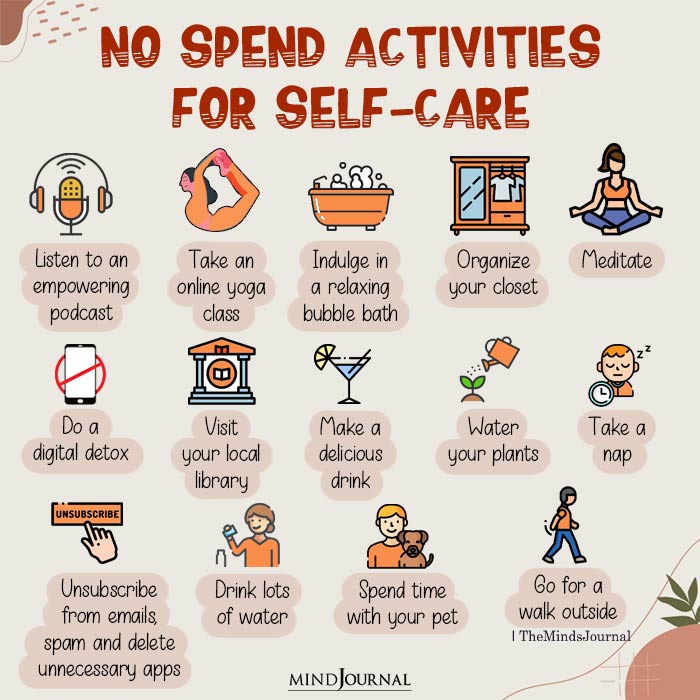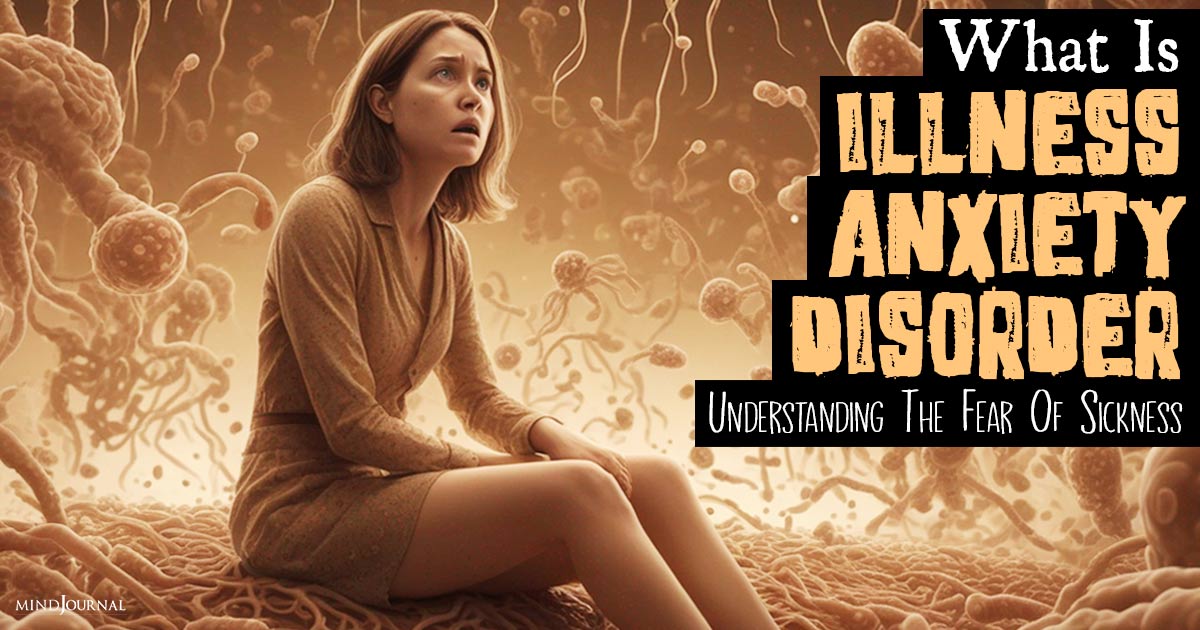Do you worry a lot about getting sick, even when there’s no real reason to? Do you constantly keep checking your body for signs of illness? If this sounds like you, you might be suffering from what is Illness Anxiety Disorder.
It’s more serious than you might think and can create a treacherous cycle, leading you down a rabbit hole of unwarranted distress and anxiety.
But don’t worry, we’re here to help. We’ll talk about what is illness anxiety disorder, look at an illness anxiety disorder example, and figure out what causes illness anxiety disorder.
We’ll also check out some illness anxiety disorder therapy options, and how you can support someone dealing with illness anxiety disorder.
Stick with us, and we’ll find a way to get through this together.
What Is Illness Anxiety Disorder
Illness Anxiety Disorder, previously referred to as hypochondriasis or health anxiety, involves persistent fears of being seriously ill, even in the absence of physical symptoms or when medical evaluations provide reassurance.

Those affected by this disorder often experience heightened anxiety over ordinary bodily sensations, such as muscle twitches or fatigue, interpreting them as indicators of a severe illness.
This excessive concern, rather than the actual physical symptoms, can profoundly disrupt daily life and lead to significant distress.
Conversely, somatic symptom disorder, a related condition, centers around the disabling nature of physical symptoms, such as pain or dizziness, without the persistent fear that these symptoms represent a specific illness.
Read More: Free Illness Anxiety Disorder Test: Online Self-Assessment
Illness Anxiety Disorder Example
Let’s look at an illness anxiety disorder example to better understand what is illness anxiety disorder and the way it can affect someone’s life.

Meet Sarah, a 30-year-old graphic designer. She’s always been a bit of a worrier, but lately, things have taken a different turn.
Sarah started experiencing occasional headaches, which most of us get from time to time. Instead of dismissing them, she began to believe that these headaches were signs of a severe brain condition.
Her anxiety grew to the point where she couldn’t focus on her work, and her personal life began to suffer.
She found herself constantly searching the internet for information on brain diseases, scheduling frequent doctor’s appointments, and insisting on extensive and unnecessary tests.
Despite reassurance from medical professionals that she was physically healthy, her anxiety didn’t wane.
This illness anxiety disorder example illustrates how illness anxiety disorder can impact someone’s life, causing them to fixate on minor symptoms and seek excessive medical reassurance.
But what causes illness anxiety disorder? Let us look at some reasons that might be causing it!
Read More: What Is Anxiety? 19 Signs, Causes, Self-Help Tips, FAQs
What Causes Illness Anxiety Disorder
The precise origins of illness anxiety disorder remain elusive to researchers, but several factors have emerged as potential contributors to its development.
Some of the most common factors what causes illness anxiety disorder include:
1. Age
Illness anxiety disorder often shows up during early to middle adulthood, around the ages of 25 to 35. It might also get worse as you get older.
Read More: 22 Tips To Keep Your Brain Sharp And Young At Any Age
2. Stress

Big life changes, like losing someone close, can make illness anxiety disorder symptoms appear or get stronger.
Read More: What Is Stress? 13 Signs, Causes, And Mental Health Affects
3. Childhood Trauma
Having a tough childhood, with things like abuse or serious illness, could make you more likely to develop what is illness anxiety disorder.
Read More: What Is Childhood Trauma? 4 Signs of Lingering Childhood Hurt
4. Family History
If someone in your family has had an illness anxiety disorder, you might be more likely to get it too. Also, if your parents worried a lot about their health or yours, that could play a role.
Read More: What Is A Toxic Family And 9 Disturbing Signs You Grew Up In A Toxic Family
5. Beliefs and Past Experience
If you have a hard time dealing with uncertainty about how your body feels, you might start to think every little sensation means something serious.

This could be especially true if you’ve had a scary health experience in the past, like when you were a kid. Understanding these possible causes can help you and your loved ones recognize and manage illness anxiety disorder better.
Read More: 5 Reasons To Make Peace With Your Past
Knowing what might lead to illness anxiety disorder can help us understand it better. Remember, this condition might show up more as you get older, or when you’re going through tough times.
Hence, it is important for us to learn the types of illness anxiety disorder as it will enable us to develop specific treatment plans!
Types Of Illness Anxiety Disorder
Let’s take a closer look at illness anxiety disorder and its different.
There are two main types of illness anxiety disorder, each with its own unique challenges.
Care-Seeking Type
This classification involves individuals who frequently seek medical care, often to an excessive extent. Some key characteristics of the care-seeking type include:
- Frequent Medical Visits: These individuals tend to visit healthcare providers regularly, sometimes excessively, leading to concerns about potential overuse of the medical system.
- Excessive Testing: They often request and undergo numerous tests and diagnostic procedures, even if they may not be medically necessary.
- Doctor Shopping: If one physician fails to provide a diagnosis, they may seek out multiple doctors in pursuit of an explanation for their health concerns.
- Persistent Anxiety: Although reassurance from healthcare professionals may temporarily alleviate their worries, the relief is often short-lived, with anxiety resurfacing soon after.
Despite acknowledging that their anxiety might be exaggerated, they struggle to accept that there is no underlying physical ailment, sometimes leading to unnecessary elective surgeries.
Care-Avoidant Type
Contrasting the care-seeking type, the care-avoidant type is characterized by avoidance of seeking medical attention. Some notable attributes include:
Avoidance Behavior
These individuals actively avoid visiting doctors or discussing their health concerns, often out of fear of confirmation of their perceived illness.
Communication Hurdles
They may resist sharing their worries with healthcare providers or loved ones due to apprehension about being ridiculed or not taken seriously.
It is crucial to recognize that illness anxiety disorder often coexists with other mental health conditions, intensifying the challenges individuals face.
Read More: How To Improve Communication Skills: Top 5 Strategies
Some of the commonly associated disorders include:
1. Obsessive-Compulsive Disorder
Many individuals dealing with illness anxiety disorder may also exhibit symptoms of OCD, characterized by recurring thoughts and behaviors that lead to heightened anxiety.
2. General Anxiety Disorder

Co-occurring anxiety disorders can compound the distress experienced by individuals struggling with illness anxiety disorder, amplifying their overall psychological burden.
Read More: 5 Main Causes Of Generalized Anxiety Disorder
3. Depression
The presence of depression alongside illness anxiety disorder can further exacerbate emotional difficulties, potentially leading to a complex interplay of symptoms that require comprehensive and tailored treatment approaches.
Read More: Depression 101: 10 Signs And Treatment For Depression
Illness Anxiety Disorder Therapy
Regaining a sense of control over health-related worries is our main aim when addressing illness anxiety disorder.
Here are some helpful treatment methods to assist in restoring your balance and well-being:
Psychotherapy
Engaging in talk therapy, particularly cognitive behavioral therapy. Using illness such as anxiety disorder therapy can play a vital role in managing illness anxiety disorder.

CBT equips you with valuable skills to confront health-related anxieties in a constructive manner, fostering a healthier approach to managing your worries and concerns.
Using CBT as your illness anxiety disorder therapy, you can:
- Recognize and address your fears and beliefs regarding serious medical conditions.
- Foster alternative perspectives on your bodily sensations by challenging unproductive thoughts.
- Develop a deeper understanding of how your worries impact your overall well-being and behaviors.
- Cultivate effective coping strategies for handling your stress and anxiety.
- Minimize your urge to constantly seek reassurance or monitor for signs of illness.
Additional therapeutic techniques such as behavioral stress management and exposure therapy may also prove beneficial during your treatment process.
Read More: What Is Psychotherapy: Techniques, Types And Benefits
Medications
Your healthcare provider may suggest the use of antidepressants, like selective serotonin reuptake inhibitors, to help alleviate symptoms associated with illness anxiety disorder.
Furthermore, medications targeting mood or anxiety disorders, if present, can complement your overall treatment plan.
You should engage in open discussions with your healthcare provider to fully understand the potential benefits, side effects, and risks associated with these medications.
Read More: Are Medications The Only Solution To Mental Illness?
Self-Care Practices
Alongside professional treatment, incorporating self-care strategies into your daily routines can further support your overall well-being.

Consider the following steps:
- Collaborate closely with your healthcare providers to establish a structured approach to address your concerns and foster a trusting relationship.
- Explore stress management and relaxation techniques, such as progressive muscle relaxation, to help alleviate your anxiety levels.
- Embrace physical activity as a means of enhancing your mood and promoting your overall physical well-being.
- Stay actively engaged in work and maintain connections with your social and familial networks to access added support.
- Refrain from relying on alcohol or recreational drugs, as they can complicate your treatment process.
Lastly, you should avoid the urge to self-diagnose by researching potential diseases online, as this can exacerbate what is illness anxiety disorder.
Read More: What Is Self Care And Wellness: Top 7 Benefits And Tips
Prioritizing open communication with your healthcare providers during scheduled appointments is key to addressing any concerning symptoms and navigating the path toward your improved well-being and peace of mind.
When it comes to supporting someone facing illness anxiety disorder, your understanding and guidance can make a significant difference.
Let’s explore some valuable ways how to help someone with illness anxiety disorder.
How To Help Someone With Illness Anxiety Disorder
Supporting someone with illness anxiety disorder can be challenging, but there are ways to provide effective assistance and understanding.

Here are some valuable strategies on how to help someone with illness anxiety disorder:
1. Educate Yourself
Learning about illness anxiety disorder therapy can provide you with insights into what your loved one is experiencing. Understanding the symptoms and triggers associated with the condition can help you provide better support and empathy.
2. Listen Empathetically
Encourage open communication and provide a supportive environment for your loved one to express their fears and concerns. Actively listening without judgment can make them feel understood and valued.
3. Set Boundaries with Compassion
While it’s important to be supportive, it’s also essential to establish healthy boundaries. Encourage open conversations, but ensure that discussions about health concerns don’t dominate every interaction.
4. Encourage Professional Help
Encourage your loved one to seek professional guidance from therapists or counselors specializing in anxiety disorders.
Encourage them to adhere to recommended treatment plans and attend therapy sessions regularly to regain your confidence against what is illness anxiety disorder.
Read More: Therapy: Know About 5 Different Types Of Therapies
5. Promote Self-Care
Encourage activities that promote relaxation and well-being, such as mindfulness exercises, yoga, or meditation. Engaging in activities they enjoy can help reduce stress and improve their overall quality of life.
Remember, being patient, compassionate, and understanding can go a long way in how to help someone with illness anxiety disorder. It’s essential to provide them with the illness anxiety disorder therapy they need while also taking care of your well-being.
Together Towards Wellness
So, there you have it! Dealing with Illness Anxiety Disorder might seem like a tough nut to crack, but remember, you’re not alone in this. By understanding what’s going on and learning about the different types, we can figure out the best ways to tackle it together.
Looking at illness anxiety disorder example we get a sense of the impact it has on someone’s life.
Talking to someone who gets it and knows how to help can make a world of difference. Therapy, like talking things out with a pro, can really help. It’s like giving your brain some good exercises to make you feel better about your health worries.
If you’re supporting someone dealing with what is illness anxiety disorder, be patient and listen. Encourage them to talk to someone who knows how to help, and remind them to take care of themselves too.
Together, we can work through this and move towards feeling better and stronger.
Frequently Asked Questions (FAQs)
1. What is illness anxiety disorder?
Illness Anxiety Disorder is a condition where individuals excessively worry about being seriously ill, even without physical symptoms, leading to significant disruption and distress in daily life.
2. What causes illness anxiety disorder?
Illness Anxiety Disorder can be caused by various factors, including age, stress, childhood trauma, family history, and past experiences and beliefs related to health, all contributing to heightened health-related anxieties.
3. What are the types of illness anxiety disorder?
The two types of Illness Anxiety Disorder are the care-seeking type, characterized by excessive medical visits and testing, and the care-avoidant type, where individuals actively avoid seeking medical attention due to fear or anxiety about their perceived illness.
4. What are some illness anxiety disorder therapy?
Therapeutic approaches for Illness Anxiety Disorder include Cognitive Behavioral Therapy (CBT), which helps individuals address fears and beliefs about serious medical conditions, as well as medications like antidepressants.
5. How to help someone with illness anxiety disorder?
Supporting someone with Illness Anxiety Disorder involves educating oneself about the condition, actively listening without judgment, setting compassionate boundaries, promoting self-care activities, and encouraging professional help like therapy, to provide effective assistance and understanding.










Leave a Reply